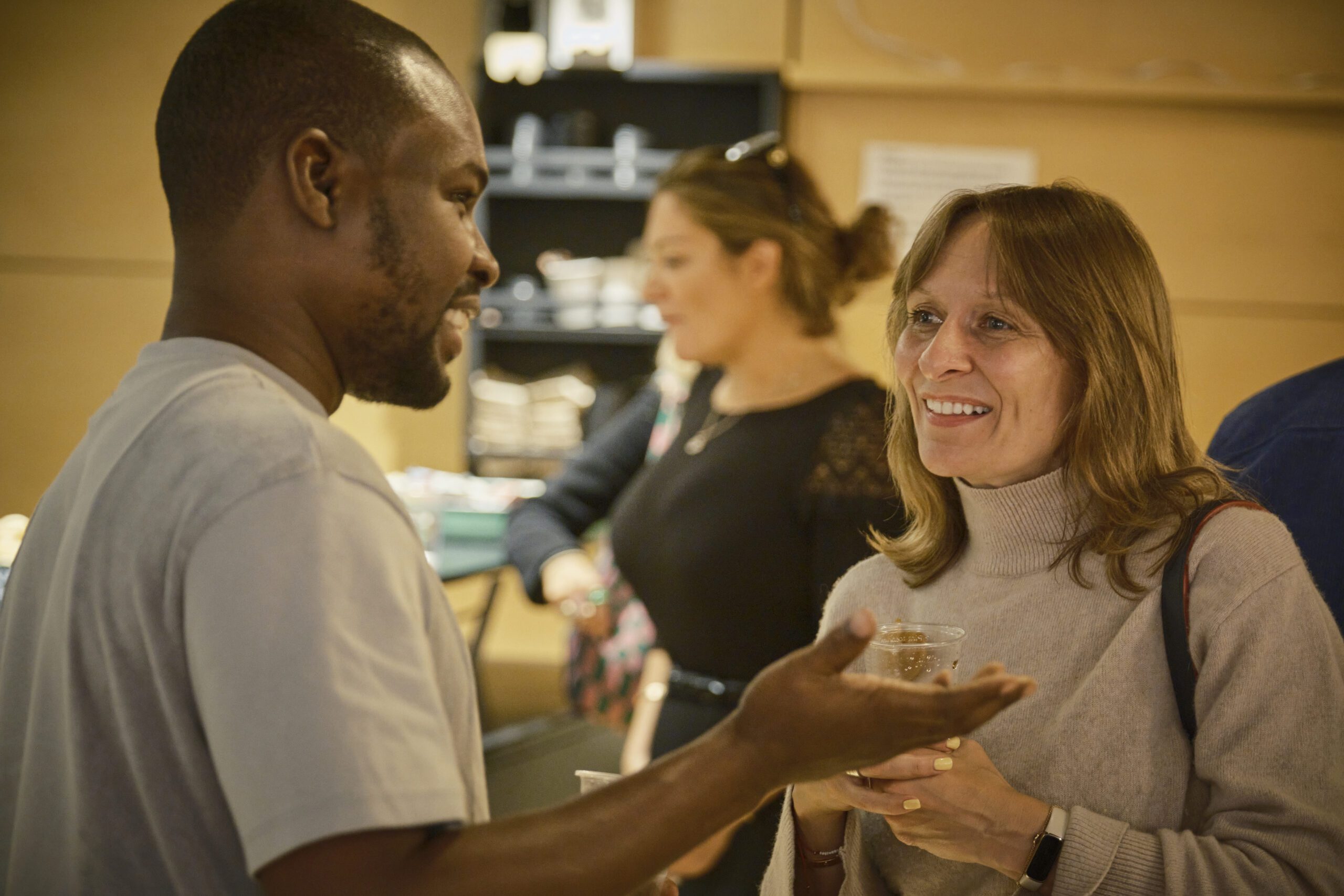Potential side jobs for actors that can help you make a living while acting.
When you choose to pursue acting as a career, there are many uncertainties in your path ahead. Financial instability is perhaps the biggest concern for many aspiring actors and it’s common for creatives to have a hand in many different fields before they can afford to transition into a full-time career as an actor.
The unfortunate reality is that your passion for acting may not always afford you financial stability. The ultimate goal may be to generate a source of income from acting alone, but there are many steps and strategies that you have to navigate before you’re fortunate enough to be in this position.
At the end of the day, acting is a job and if you aren’t making enough doing it to support yourself, then it may be time to look into other sources of income. Acting is not an easy career to navigate, but by giving yourself the chance to rid yourself of financial stress or struggles, you’re investing in your career and giving yourself every chance for success.
Key Things to Consider When Looking for a Side Job
The most viable side jobs are the ones that allow you to increase or decrease your hours as and when you need – while enabling you to meet your financial obligations month in and month out. For an actor, an ideal side job would be related to acting in some way like working in a theatre, but most of the time, side jobs are from entirely different industries.
When looking for work, you have to be upfront about what it is you want your work–life balance to look like. A number of obvious components are money, time, skills and flexibility, but here are some other things to consider:
- Does this side job offer you enough money to live comfortably?
- Do you have the necessary skills to do the job successfully?
- Does the role offer any work-from-home hours?
- Will you be able to dedicate enough time to auditions and self-tapes?
- Can you adequately fulfil your responsibilities?
- Can you expand your side job into a more lucrative opportunity?
- Are there opportunities for promotion or to resign if you need to?
Many actors have non-acting interests or have gotten degrees in other fields. This allows them to have a whole separate career outside of acting to fall back on if they choose to. Acting is only as important as you want it to be and you can choose to pursue it or put it down at any time. Having other interests or a side job that’s equally fulfilling will benefit you in the long run.
Different Types of Side Jobs
Some of the best jobs I’ve worked while pursuing acting have been related to the theatre. When I worked at a theatre, I was able to pick and choose shifts and organise my time around the schedule. My colleagues were also a mix of actors, musicians and freelance creatives who had other jobs and obligations. The structure of this type of job was the perfect side job for me and showed me that my ambitions and financial security could co-exist – so long as I looked in the right places.
Set yourself a goal and look into what types of industries will allow you to fulfil your goals. There will need to be room for compromise, sure, but you have to allow yourself to set boundaries on what works for you.
On some occasions when I needed more money, I was able to pick up more shifts, and I was even offered a full-time position. Even though this role would give me a higher salary, it meant giving up more of my time that I had set aside for auditioning.
Here are some other examples of industries and types of side jobs you could look into pursuing:
- Front of house, theatre
- Assistants, runners, film production
- Administrative assistant
- Data entry clerk
- Hospitality, bar staff
- Receptionist
- Librarian
- Events, promotional staff
- Children’s entertainer, clowning
- Babysitting, dog walking
- Teaching, online tutoring
Here are some useful resources and websites that I found helpful when I was searching for a side job:
Temping and Promotional Work
Temping is also a brilliant option to consider if you’re looking for work to match your flexibility. When you sign up with a temp agency, you can be very specific with what hours you’d like to work and what type of work you want to do. A recruiter will try and find a suitable role to fit around you, so there’s enough incentive to be as honest as possible about what you would like to do.
Temp roles can be permanent and part-time or contractual and full-time – whatever you want to commit to can be found through an agency.
Another great option that offers flexibility is promotional work. The process involves signing up to agencies, creating a profile, and taking on jobs on an ad-hoc basis. Agencies regularly list marketing brand promotion and sampling jobs that are known to pay well due to their last-minute nature. These jobs are often for brands or corporate events and they add an element of spontaneity and excitement to working as and when needed.
Take a look at some examples of promotional agencies below:
- TRO
- Eventeem
- Push Promotions
- Breeze People
Balancing Acting with your Side Job
When you start working, one of the main things you need to look at is how tolerable your new side job is and its effect on your mental state. A side job can be difficult to uphold if your mental state becomes disinterested or unmotivated. How you show up at work can say a lot about your work ethic in any career, so it’s important to create a balance.
Keep your mindset focused by looking at the time you’re dividing between your creative passion and your financial responsibilities. If your schedule can be adjusted, take a look at reducing your hours in a way that allows you to still earn enough money. Having a few extra hours for yourselfto rest between juggling two careers will help replenish you.
Be honest with your employer, write down the questions you have or the requirements you need and ask them to consider what they can do. Enquiring about hours or asking for flexibility is perfectly reasonable employees can have lots of personal reasons for wanting to reduce hours. It’s always best to be upfront and let your employer know ahead of time, and also show them your initiative and work ethic.
When I left the theatre job to move to New York, the senior management team couldn’t have been more supportive. They valued me as a member of staff and even offered me seasonal work when I returned to the UK during holidays. Balance is so important while maintaining a side job and you have to be able to shift between mindsets and offer the best of yourself to both roles.
When to Move on From a Side Job
One of the fears that might come with having a side job is that acting will be put on the back burner. It’s easy to get distracted when you’re earning a decent wage, and it’s perfectly reasonable to consider giving acting a break – especially when many acting jobs won’t pay as much or as consistently.
If you feel you’re not getting enough back from what you’re putting into your acting career, take the time to reassess your situation. Look at how much time you’re spending at your side job and revisit how you’re feeling when you go to work.
Here are some things to ask yourself when you’re considering leaving a side job:
- Do I feel exhausted mentally at my side job?
- Am I happy and do I look forward to work?
- Am I being fulfilled at my side job?
- Am I earning enough money?
- Am I taking on responsibilities I don’t have to?
- Have I let my side job become my main focus?
- Am I able to switch off when I come home?
- Am I still excited to look at auditions or do I think my side job will interfere?
- Am I financially able to leave my side job permanently?
As much as we can prepare for a side job and set boundaries with our schedule, things can change. As you move through your role, you may get asked to pick up hours or apply for promotions and you may find yourself dedicating more time to a side job than you originally anticipated. However, it’s not too late to reassess.
When reassessing, look at the environment and see whether making changes to the job you’re doing would change your perspective. When I worked in retail, my manager didn’t take my ambitions to become an actor seriously, so I was always asked to pick up more hours and dismissed if I said no. I was even asked to do certain front-facing tasks during a shift because “I did drama.”
When I left retail to work in the theatre as front of house, I was never questioned about time off, I was open about my auditions, and I was surrounded by support and understanding. This was the key to thriving in a side job: knowing that you can leave and there may be a more supportive and flexible role out there that offers what you need. It can be scary to leave stability, but by letting go of a side job where you aren’t thriving, you could open up many more possibilities that will allow you to follow your passion.
Remember: Having a Side Job is Normal
There shouldn’t be any feelings of shame surrounding pursuing a second job. Every actor, even the most successful ones, will have been in the same position at some point. It’s more common today than ever for actors to wear many different hats and have outside interests.
Even the most famous actors have had odd jobs throughout their lifetime before making it in Hollywood. Margot Robbie used to work at Subway, Hugh Jackman was a children’s entertainer and Melissa McCarthy used to work at Starbucks. The pursuit of acting as a passion is not one size fits all, but you have to make the decision for yourself as to whether the financial instability is something you can cope with.
Of course there are factors to consider for every individual, but the possibility is there. Knowing that there are so many actors out there who are trying to pursue their passion while battling through hardship and financial struggles can make you feel less alone. Everyone is trying their best, and that’s all you have to do. The tools and tips are out there and there are so many success stories to use as inspiration.
If you keep at it and build a strong work ethic, you can find yourself one audition away from everything you have been working towards.
Take a look at our website for more tips and advice for wellbeing, including advocating for yourself in the workplace and how to juggle the business and art of acting.
 Karen Johal is most notably known for playing Nicole Shelley in the award-winning Apple TV+ series Ted Lasso, starring opposite Jason Sudeikis, Brett Goldstein and Nick Mohammed. She currently stars in the BBC television series Phoenix Rise as Noreen Khan, starring opposite Paul Nicholls, Zita Sattar and Tyler Fayose. Karen’s film credits include: The Waves for MTV Entertainment directed by BAFTA award winner Sindha Agha; Frank’s Plan for Amazon Prime; and The High Performer for the award-winning digital creative We Are Tilt. She also starred in a global campaign for instant messaging platform WhatsApp with Broadcaster Alex Scott MBE and in a national Christmas commercial for retailer TK Maxx.
Karen Johal is most notably known for playing Nicole Shelley in the award-winning Apple TV+ series Ted Lasso, starring opposite Jason Sudeikis, Brett Goldstein and Nick Mohammed. She currently stars in the BBC television series Phoenix Rise as Noreen Khan, starring opposite Paul Nicholls, Zita Sattar and Tyler Fayose. Karen’s film credits include: The Waves for MTV Entertainment directed by BAFTA award winner Sindha Agha; Frank’s Plan for Amazon Prime; and The High Performer for the award-winning digital creative We Are Tilt. She also starred in a global campaign for instant messaging platform WhatsApp with Broadcaster Alex Scott MBE and in a national Christmas commercial for retailer TK Maxx.
In Theatre, Karen recently played the lead role in Ayad Akhtar’s The Who and the What at The English Theatre of Hamburg in Germany and has starred opposite Scottish actor Alan Cumming in the original musical Me and the Girls. She played the lead role in the regional premieres of David Harrower’s Blackbird and Duncan Macmillan’s People, Places and Things. Karen was also directed by Iqbal Khan in Mismatch, performing as part of the Sky Comedy Rep Festival at The Birmingham Rep Theatre in 2022.
Karen is a graduate of The American Academy of Dramatic Arts in Manhattan, New York where she performed on stage for The Public Theater at Shakespeare in the Park and at the world famous Carnegie Hall.
Headshot credit: Andy Brown



















